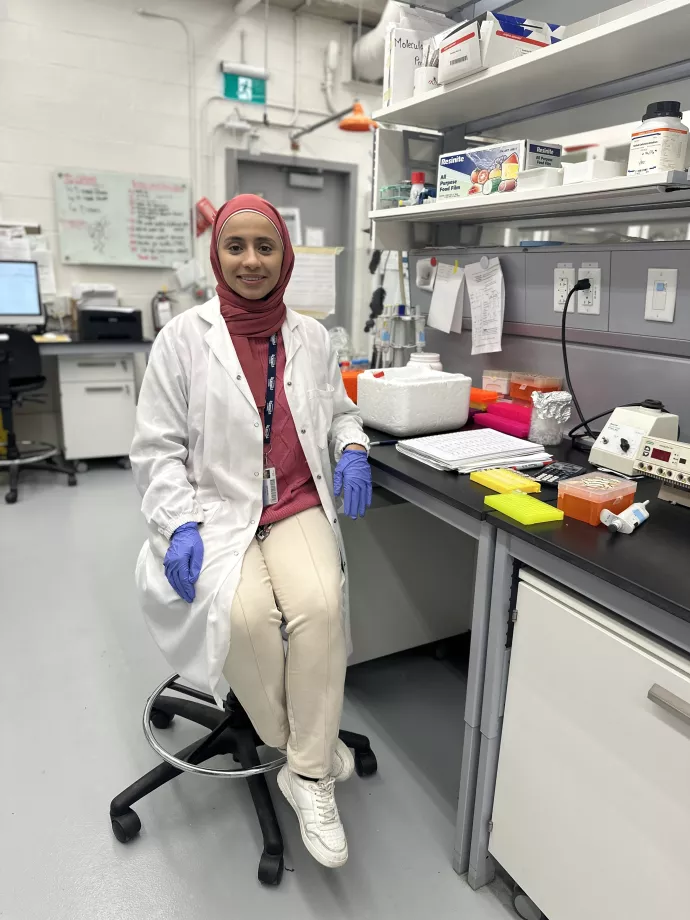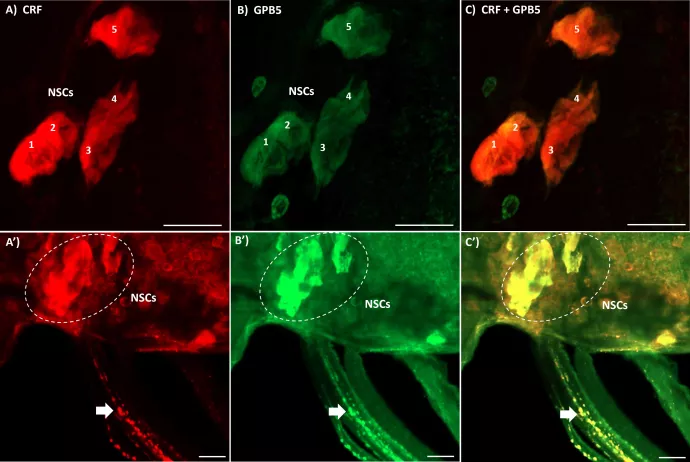
Areej Al-Dailami new paper published by Frontiers in Endocrinology
We are proud to announce that Areej Al-Dailami, PhD student, Lange & Orchard lab published her paper Corticotropin-releasing factor-like diuretic hormone acts as a gonad-inhibiting hormone in adult female, Rhodnius prolixus in Frontiers in Endocrinology.
https://doi.org/10.3389/fendo.2023.1279929
Areej Al-Dailami’s BIO
I am a PhD candidate at University of Toronto Mississauga supervised by Professors Angela Lange and Ian Orchard. My thesis work mainly focuses on understanding the role of the glycoprotein hormone GPA2/GPB5 in the regulation of reproduction and diuresis in Rhodnius prolixus, an important vector of Chagas disease, commonly known as the “kissing bug”. Recently, presented in this work, I studied the role of an interesting neurohormone, the corticotropin releasing factor/diuretic hormone (CRF/DH), in the regulation of reproduction of adult females, R. prolixus. In the Lange & Orchard lab, our work allows for experimentation at the whole animal level down to the molecular level, giving us an opportunity to examine how neuropeptides and hormone systems participate in successful behaviours; including aspects of reproduction, digestion, circulation of nutrients and waste, and ecdysis behaviour.

There is limited research on the role of CRF/DH in reproduction in insects, and our goal is to understand how this neurohormone might contribute to successful egg production in the kissing bug, Rhodnius prolixus. Our results indicate that CRF/DH delays egg production, thereby acting as a gonad-inhibiting hormone. Thus, disruption of this neurohormonal pathway by RNAi leads to accelerated oogenesis, an increase in the number of eggs laid, an increase in egg size and a reduction in hatching rate. CRF/DH acts at least in part, by reducing the synthesis of the major yolk protein, vitellogenin, in the fat body and reducing the synthesis of ecdysteroids by the ovaries. Delaying egg production may be necessary to ensure that the nutrients from the blood meal are available for vitellogenesis, and/or in a virgin, possibly until mating occurs.
